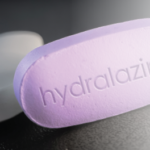Safety Signals
The FDA also highlighted some potential safety concerns, especially with respect to potential toxicity in the liver. Nine patients in the avacopan group had abnormalities on liver-function testing, some of which led to drug discontinuation, compared with six in the prednisone group. All these abnormalities resolved after drug withdrawal.
The investigators responded that these patients were on several different drugs that might have induced these liver issues, including cyclophosphamide and trimethoprim-sulfamethoxazole, so attributing these to avacopan may be shortsighted. Of more theoretical concern is the fact that the total drug exposure is only about 400 patients (across the ADVOCATE phase 3 study and the two phase 2 studies).1-3
One key difference between the ADVOCATE and RAVE trials, says Dr. Chung, is that rituximab had already been approved for other diseases and had established a much more extensive safety profile. “The limited experience with avacopan makes it challenging to unequivocally endorse approval of this new drug,” she adds.
Vote
On the question of whether the efficacy data supported approval of avacopan for adult patients with ANCA-associated vasculitis, the committee split 9–9. The committee voted 10–8 that avacopan’s safety profile adequately supported its approval. For the final question, whether the overall benefit-risk profile supported avacopan approval, the vote was also 10–8 in favor.
Given this lack of consensus, it may have been a difficult vote for many of the committee members. The rheumatology community had been quite excited by the prospect of the new drug, and a favorable editorial in The New England Journal of Medicine had sparked much interest.7
“There was, in some respects, an emotional drive to have this drug approved,” Dr. Chung says. “We saw signs of efficacy in this study, but confounding factors put into question the degree of efficacy. Yet we all know that we need an alternative for glucocorticoids, given their significant toxicity.”
The FDA will consider the recommendations of the Arthritis Advisory Committee as it continues to contemplate avacopan’s potential approval, but it is not required to follow them. A final decision by the FDA is expected soon.
Ruth Jessen Hickman, MD, is a graduate of the Indiana University School of Medicine. She is a freelance medical and science writer living in Bloomington, Ind.
3 New Guidelines for Vasculitis
In July, the ACR in concert with the Vasculitis Foundation released three new guidelines for: ANCA-associated vasculitis, giant cell arteritis and Takayasu arteritis, and polyarteritis nodosa. Read our summary article or access the full guideline articles. A guideline for Kawasaki disease is anticipated later this year.



